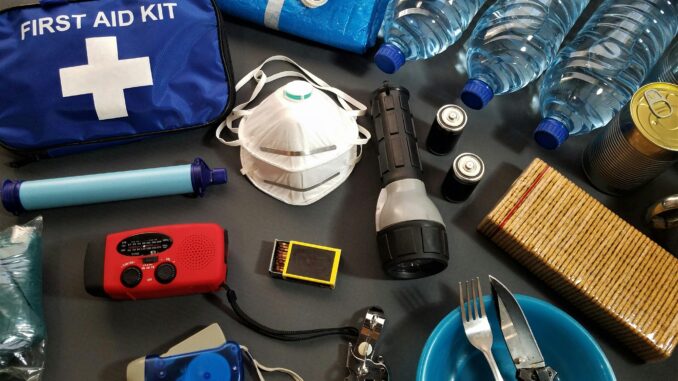
By Ana Diaz —
Recently, Faculty Unhinged hosted another discussion over free pizza for students and faculty. This time, the discussion was hosted by Professor Steve Schuchart, who teaches criminal justice at Miami. Schuchart has a history in law enforcement and the military, and grew up on a farm, surrounded by woods and nature. He has a hobby of creating adventures for himself in nature, so he gave his talk about his 10 Cs for survival to teach everyone how to fend for themselves in nature in an uncertain world, and to encourage others to find peace and pleasure outside in nature.
Prof. Schuchart discussed being heavily influenced by Eastern philosophies and transcendentalists such as Henry David Thoreau, and he thoroughly enjoys being outside and guiding himself through his own adventures. During his talk, he also stressed the importance of learning these skills in an uncertain and rapidly changing world where bad things can, and do, happen to people. It never hurts to be prepared.
To demonstrate his 10 Cs, Mr. Schuchart laid out his backpack, about 18 or 20 pounds, and it was stuffed full of items that he said could sustain him for about a week in the wild if necessary. Each C was a component of his backpack that he considered essential to survival in the wilderness. The first C was a cutting tool, which could be used in first aid, fire starting, or other emergency or cooking situations. Schuchart stressed the importance of the second C, a cover, such as a poncho, for protection from wind and rain, and to provide temporary shelter outdoors if needed.
The third C was “cold,” as in that is something you definitely don’t want to be when you’re out in the wilderness. Mr. Schuchart always packs a mylar blanket, which won’t last forever, but when you’re in a pinch and it’s cold outside, it can mean the difference between life and death. The fourth C is a combustion device, for fire-starting reasons. It’s important to have more than one combustion device, because as with most things in his pack, it’s important to have a backup. Schuchart pulled out a Ferro rod, a type of combustion device that can throw an impressive stream of sparks. “Is it overkill to demonstrate the Ferro rod?” he asked the group, which enthusiastically responded that they would very much like to see the demonstration. The stream of sparks the device threw delighted the participants.
Next on the list was a cooking device. Schuchart carried two different portable camp stoves, several cups and bowls, and some packs of dried camp food he could cook on his camp stove. This would be enough to sustain someone for a couple of days if that person found him or herself lost and needing to find the way back to civilization. Another C was for containers for water. Prof. Schuchart stressed that water was one of the most important tools for survival; he warned that we always want to have water with us, even for short outings. He carried several water bottles, including one with a fancy filter that’s even rated to filter out viruses. This would enable the adventurer to take water from a source they wouldn’t typically drink from and make it safe to consume.
The next Cs on Mr. Schuchart’s list were cords, cargo tape (duct tape), and a “candling device,” like a flashlight or headlamp, to be used to see in the dark. These can come in handy in many different situations.
Last but not least on the list was a compass for navigation, and he reminded everyone to be prepared with a map of the area before they go off adventuring, so one could use the compass or map to find the way back if needed.
After Mr. Schuchart finished demonstrating his 10 C’s of survival, he opened the discussion up to questions as he looked around at the contents of his backpack strewn about him. “I’m going to hate myself when I have to pack it all back,” he joked. The group laughed along with him and a lively question session followed. One student even asked if Professor Schuchart would be willing to teach a class regarding wilderness survival skills.
He said he would be interested, and then turned the question back to the group: “Would anyone take that class if I offered?” At least half of the group raised their hands. Laughing, Schuchart raised his own hand. “I’d probably take it, too,” he said.
In the meantime, though, Prof. Schuchart wants everyone to know that they can learn the skills needed to become competent in the wilderness. He thinks it’s good for people to take a break from the constant stimulation and screen time of the day-to-day and spend time in nature. He said the woods were his medicine, and he wants everyone to know that the woods could be medicine for you, too.
